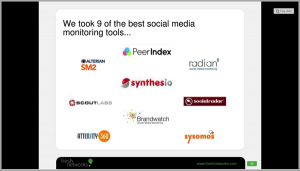
Financial stress is one of the most damaging and challenging to handle burdens in America, but it’s also something very few people talk about. Although we all need to earn and manage money, very few of us are taught how to actively plan for our futures and save our money responsibly.
Over time, millions of Americans experience intense stress as their finances spiral out of control. They start to wonder if they’ll be able to make ends meet, and their mental and physical health are negatively impacted. Today, let’s break down how you can manage your financial stress and your money using a few innovative budgeting strategies.
Financial stress and your health
Make no mistake – stress is an illness. It affects your body at the molecular level and can lead to many physical and mental side effects. If you have too much stress, you’ll feel sick, your immune system won’t function properly, and your mood will plummet.
There are few types of stress as pervasive and difficult to manage as financial stress. In one study, 72% of Americans reported some kind of financial stress in the past month. We’re constantly thinking about money, and worrying about whether we have enough of it. For many adults, financial stress is a fact of life, and they literally lose sleep because of it.
Losing sleep is doubly true if you are trying to manage money as a freelancer and you don’t have insurance. Many people lack a safety net for their health or finances, worsening their stress. For example, only 33% of Canadian adults and 55% of Americans report having a comprehensive life insurance policy in place.
Many important things are ignored or avoided without enough money to go around, including insurance, car and home repairs, healthy food, college savings, debt payments, and more. It all adds up and increases inflammation in the body, tanks mental well-being, and makes it harder to stay healthy.
Five key tips to take back control
You shouldn’t let financial stress control life or your thoughts 24/7, but you don’t have to resort to desperate measures to find peace of mind. Unless you have a secure plan in place, don’t just dump the rest of your savings into a fad investment (such as crypto). Instead, let’s take a look at some strategic ways you can take control of your finances for the better.
Budget for necessities and savings
Once you know how much money you spend and save, it’s time to start budgeting. First, take a look at all the things you absolutely must pay for – like bills, food, your mortgage payment, etc. – and categorize those things under necessities. Next, identify how much money you have leftover from your regular earnings, and start a savings account at your bank or credit union.
As you start budgeting for your necessities and savings, you’ll feel more financially secure. A sound financial plan will ease the stress burden that economic instability places on your mind. In no time at all, you’ll start feeling better about your future. After all, you’ll know that you do have enough money to make ends meet, plus a little extra to save for a rainy day.
Also, don’t forget to start saving for retirement as well. Just like there are dedicated budgeting tools, you’ll also find specialized retirement account planning. You should be setting aside a percentage of your income each month towards retirement. Hopefully, your employer offers options for this, but you can also take matters into your own hands as well.
Finally, there are savings tools out there that can help you manage risk so you can meet retirement benchmarks and ensure you enjoy your golden years.
Build an emergency fund
Speaking of a rainy day, you can and should start building up an emergency fund ASAP. You may not need the emergency fund now, but you could need it in the future if your car breaks down, you are suddenly injured, or you need to pay for another unexpected expense.
An emergency fund can provide you with peace of mind like nothing else. Come up with money goals for savings – perhaps a few thousand dollars to start – and don’t stop saving until you reach that benchmark.
Use expense tracking and accounting tools.
You can and should use budgeting tools to keep track of expenses and ensure that you manage your finances correctly. But, unfortunately, many people lose control of their finances just because they don’t have a bird’s eye view of how much they spend or earn and think they have to live paycheck to paycheck.
Expense tracking tools and accounting software can help you determine:
- How much money you make
- How much money you spend on necessities
- How much money you spend on things you don’t really need
The bottom line: the right tools will give you critical information about your finances and make it easier to practice this next step.
Cut down on non-essentials
So how can you save money for your emergency fund and your essentials? By cutting down on nonessentials.
Since you’re using budgeting software to take a hard look at your finances and create a savings plan, you should now know how much of your paycheck you spend on things like Starbucks, takeout, and happy hour. So decide which items you can bear to let go of, and stop spending money on those non-essentials.
You’d be surprised how much money you can save even with a minimum wage job if you don’t waste cash on small purchases throughout the day. Also, check to make sure you aren’t paying for streaming services or other subscriptions you don’t actually use.
Grant yourself an allowance
While it’s essential to save aggressively, saving too aggressively isn’t great for your mental health either. To avoid this, carve out a little extra change every week or month to give yourself an allowance – just like your parents might have when you were a kid.
An excellent savings account will give you the freedom to make fun purchases or treat yourself from time to time. Not only will this help you stick to your new saving habits, but it’ll also make you feel better about your financial situation without sucking the fun out of your daily life.
Conclusion
All in all, the road to financial stability can feel long and complicated. But you can manage your financial stress and take back control of your money by practicing smart budgeting, avoiding unnecessary expenses, and saving up for an emergency fund. Also, be sure to give yourself a small allowance to make fun purchases from time to time. Do this, and your financial stress will be much more manageable.
Business & Finance Articles on Business 2 Community
(26)
Report Post





